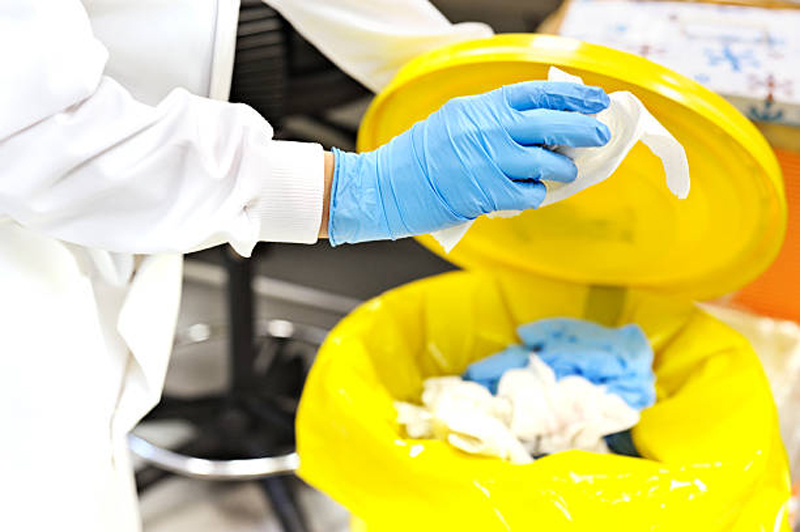
Proper medical trash disposal is crucial for a variety of reasons. However, prioritizing the health and safety of others and the planet tends to take center stage, which is honestly a good thing. But then, is there more to know about medical trash disposal? Of course, the answer is yes. Just like any other multifaceted process, there are a host of things you should know about biomedical trash and its disposal procedures. In fact, here are at least ten things you should know about medical and biohazardous waste, especially if you’re looking for a rubbish disposal provider or contractor.
Definition
Starting with the basics, medical trash disposal is essentially the storage of regulated medical trash in specific and appropriate receptacles. Once in the correct containers, a regulated medical waste provider or contractor typically collects these biohazardous containers and takes them to a treatment facility. The rubbish can be incinerated, and other methods are implored to ensure that any medical garbage that can’t be burned is adequately treated. After the treatment process, the waste no longer poses a risk to the public. Therefore, it can be transported to a landfill.
Types
In general, there are approximately 4-5 types of medical trash that need to be disposed of via expert care. Potentially infectious materials, often referred to as “red bags,” are the most common types of medical trash. The red bags are where biomedical trash is stored in, while awaiting collection, and that’s where its nickname is derived from. Red bags, however, can be a solid or liquid waste. Though mainly solid medical rubbish falls under this category, less than 25 milliliters of liquid waste is also classified as solid. Another type of biomedical trash is sharp waste. Known as “sharps,” this class of disposable medical byproduct includes any medical device or tool that can puncture the skin (or a plastic bag). Other biomedical materials that need to be disposed of, in a specific manner, include liquids over 25 milliliters, plus pathological and microbiological waste.
Universal Precaution
This globally recognized safeguard states that all medical providers and specialists must treat the following bodily fluids as infectious agents—synovial fluid, cerebrospinal fluid, blood, semen, and vaginal secretions. The reason is that these particular body fluids have a greater potential for transmitting disease or viruses. Moreover, based on this global standard, the CDC created a list of precautionary measures for healthcare workers to follow in the event that they come in contact with these particular fluids, including wearing gloves, mask/face shields, protective eyewear, and personal protection equipment (PPE) like barrier gowns. Healthcare workers must also thoroughly wash their hands.
Annual Amount
In the United States, more than 6 million tons of biomedical rubbish is disposed of each year. This may seem like a lot at first, but when you think about all the instances where medical waste is a possibility or a byproduct, that number starts to make a little more sense. From giving birth to dentist appointments, and everything in between, biomedical trash is a byproduct of everyday life.
State and Local Guidelines
Although most people agree that proper disposal of hazardous medical trash is a must, not everyone agrees on how they should go about doing so. There are local, state, and federal regulations. Moreover, disposal procedures and policies vary from state to state. Thus, it’s highly recommended that you have a knowledgeable medical waste disposal provider accredited to remove hazardous waste.
Hospital/Clinic Reputation
Improper rubbish removal can and does affect a hospital’s/clinic’s reputation. Though this may seem less important when trying to protect the health and safety of every living thing in this world, people want to know you’re discarding your biohazardous waste correctly. If patients see that you’re throwing caution to the wind with such a serious matter, they are likely to question your establishment’s overall fitness to treat/serve them. Furthermore, people want to know you’re protecting the environment.
The Benefit of an Experienced Waste Disposal Provider
Along those same lines, then, it’s imperative for your business and overall safety to work with a knowledgeable waste disposal provider or collection agency. If, by chance, you’re looking for a rubbish disposal provider with ample experience in your area, but you don’t know where to start your search, or maybe you just want a little more information on the matter of proper disposal, then go to https://www.medprodisposal.com/medical-waste-disposal/.
Industries Served
A truly experienced medical waste provider should serve multiple industries. Of course, hospitals and emergency care clinics tend to produce the most biohazardous waste annually. Thus, any provider or contractor will have some experience when it comes to serving these particular sectors. However, as suggested, there are a variety of industries that have medical trash that needs to be collected, treated, and disposed of properly. A few other industries that benefit greatly from services such as these are solo practitioners, long-term care or nursing homes, dental practices, funeral homes, tattoo parlors, vets, testing sites, and even butcher shops or establishments that deal with a lot of animal byproducts.
More Than One Way to Dispose
Ultimately, with so many industries being served and several types of medical waste, it’s not too surprising that there’s more than one way to dispose of regulated medical or biomedical trash. In fact, each class of biomedical trash has its own set of disposal procedures. Nevertheless, the general method of disposal involves containment of some kind, collection, treatment, and discarding of the trash in such a manner that it doesn’t harm public safety, health, or the environment.
Sustainability
Lastly, as the world becomes more environmentally conscious, greener methods and sustainable disposal are gaining traction. Consequently, the need to have a clear plan or strategy to manage your medical waste in a more environmentally-friendly way is real. Don’t be afraid to look into ways to improve your overall disposal process. Start small by looking into recycling options and greener alternatives.
Comments
comments